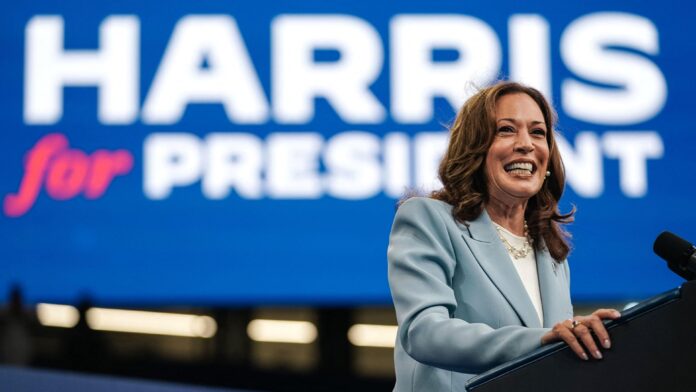Introduction
Kamala Harris, the first female Vice President of the United States, has made history not only as a woman but also as the first Black and South Asian Vice President. Her journey from a young girl in Oakland, California, to the halls of the White House exemplifies resilience, determination, and a commitment to public service. This article explores her early life, educational background, political career, and her impact on American society.
Early Life and Education
Roots in California
Kamala Devi Harris was born on October 20, 1964, in Oakland, California. She was raised by a single mother, Shyamala Gopalan, a breast cancer researcher, and her father, Donald Harris, a Jamaican economist. Growing up in a multicultural environment, Kamala was exposed to various perspectives that would shape her worldview and future career.
Academic Achievements
Harris attended Howard University, a historically Black college in Washington, D.C., where she earned a Bachelor of Arts degree in political science and economics. Following her passion for law, she went on to attend the University of California, Hastings College of the Law, where she earned her Juris Doctor in 1989. Her academic journey laid a solid foundation for her future in politics and law.
Early Career: Law and Public Service
Prosecutor and District Attorney
After law school, Harris began her career in the Alameda County District Attorney’s Office, where she specialized in prosecuting cases of gang violence and sexual assault. In 2003, she became the first female District Attorney of San Francisco, focusing on innovative programs to reduce recidivism and improve public safety.
California Attorney General
In 2010, Kamala Harris made history again by becoming California’s first female Attorney General. During her tenure, she prioritized issues like consumer protection, civil rights, and criminal justice reform. Her commitment to addressing systemic issues within the criminal justice system earned her national recognition and set the stage for her political ascent.
Political Ascent: U.S. Senate
Campaign for the Senate
In 2016, Kamala Harris ran for the U.S. Senate, winning a closely watched election in a state known for its progressive values. Her campaign emphasized issues such as healthcare, immigration reform, and climate change. Harris’s ability to connect with diverse voter demographics helped her secure a decisive victory.
Key Legislative Initiatives
During her time in the Senate, Harris quickly established herself as a prominent voice on key issues. She served on several committees, including the Senate Judiciary Committee and the Committee on Homeland Security and Governmental Affairs. Notable legislative initiatives included advocating for comprehensive immigration reform, fighting for women’s reproductive rights, and pushing for accountability in police practices.
Vice Presidency: Breaking Barriers
Historic Election
In 2020, Kamala Harris was chosen as Joe Biden’s running mate, making her the first woman of South Asian and African American descent on a major party ticket. The election was a landmark moment for diversity and representation in American politics, reflecting the changing demographics of the nation.
Role as Vice President
Since taking office on January 20, 2021, Harris has taken on various responsibilities, including addressing the COVID-19 pandemic, championing voting rights, and promoting economic recovery. She has also played a critical role in foreign policy, particularly in strengthening relationships with other nations and advocating for global equity.
Impact on Society
Advocacy for Social Justice
Kamala Harris has been a strong advocate for social justice, consistently using her platform to address systemic racism, inequality, and gender discrimination. Her work has inspired a new generation of activists and leaders, particularly among young women and people of color.
Focus on Economic Empowerment
Harris’s policies often emphasize economic empowerment, particularly for marginalized communities. Initiatives aimed at increasing access to education, affordable housing, and healthcare have become central to her agenda, reflecting her belief that economic security is foundational to social equity.
Challenges and Criticism
Navigating Political Polarization
Despite her accomplishments, Kamala Harris has faced significant challenges, including political polarization and criticism from both sides of the aisle. As a woman of color in a leadership position, she has often been subjected to scrutiny that her male counterparts might not face. Nevertheless, she has maintained her focus on the issues and continues to advocate for change.
Balancing Expectations
As Vice President, Harris must navigate high expectations from her supporters while also managing the complexities of governance. Balancing her role in the administration with her commitment to grassroots movements is a challenge that Harris has approached with determination and grace.
Legacy and Future Aspirations
Paving the Way for Future Leaders
Kamala Harris’s rise to power represents a significant shift in American politics. Her journey has paved the way for future leaders, particularly women and people of color, to envision themselves in roles of leadership. Harris’s legacy is not only in her current role but also in the inspiration she provides to those who follow.
Vision for the Future
Looking ahead, Harris has expressed her commitment to continuing the fight for equality, justice, and opportunity for all Americans. Her vision encompasses a more inclusive and equitable society, where every individual has the chance to thrive.
Conclusion
Kamala Harris stands as a testament to the possibilities of American democracy. Her journey from a young girl in Oakland to the Vice Presidency is a story of resilience, dedication, and unwavering commitment to public service. As she continues to navigate the complexities of her role, her impact on American society will undoubtedly be felt for generations to come. Harris’s story is not just her own; it is a narrative that embodies the struggles and triumphs of countless individuals striving for justice and equality in America.

